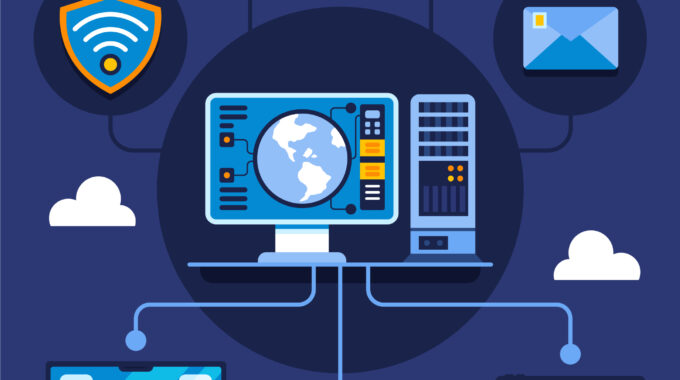Introduction Efficiency is critical in the fast-paced business environment of today. Businesses are always looking…

The Importance of Training Staff on Your POS System
Introduction
To remain competitive in today’s corporate environment, efficiency, speed, and precision are essential. Point-of-sale (POS) systems, which combine inventory control, customer relationship management, and payment processing into a single, seamless platform, have emerged as a key component in reaching this efficiency. Even the most sophisticated point-of-sale systems, meanwhile, are only as good as their users. Because of this, staff POS system training becomes not just crucial but also vital. Employees with the necessary training may take full advantage of the system’s capabilities, which will enhance customer service, lower error rates, and boost overall operational effectiveness. This post will discuss the importance of staff POS system training and how it affects many areas of business operations.
Enhancing Operational Efficiency
The immediate impact that your point of sale system has on operational efficiency is one of the main justifications for staff training. A skilled worker can process transactions fast, handle various payment methods, and confidently respond to client questions. Conversely, a staff member who finds it difficult to use the POS system will cause the entire process to lag, which will result in longer wait times, irate clients, and eventually decreased revenues.
Once employees are well-versed in the features and functionalities of the POS system, they can benefit from its automation technologies. For instance, many contemporary point-of-sale (POS) systems automatically update inventory levels after each transaction, but only when employees use them correctly. Employees who are aware of these capabilities can make sure that inventory records are correct, which will reduce the possibility of stock inconsistencies and remove the need for manual changes.
POS training is essentially an investment in quicker, more seamless transactions, which increase consumer throughput and improve business operations. Employees that receive training are better able to concentrate on providing high-quality service rather than learning the complexities of the system.
Reducing Errors and Improving Accuracy
One of the biggest risks to any company’s productivity is human mistake. Payment processing errors, product data entry errors, and discount application errors can result in lost revenue and eroded consumer confidence. Staff POS system training considerably lowers these errors. Employees that receive in-depth training will be more adept at processing different payment methods, applying discounts, and accurately entering data.
Furthermore, a trained employee has a higher chance of identifying such problems before they become more serious. An employee who is familiar with the functionality of the system, for instance, will know how to immediately modify the pricing if a product price is entered wrongly. This guarantees that the company has accurate financial records and lowers the possibility of charging the wrong amount. Reduced errors eventually translate into decreased expenses, fewer operational interruptions, and higher customer satisfaction.
Identifying and fixing system bugs or faults is another benefit of training for staff members. Trained staff members may troubleshoot difficulties immediately, reducing downtime and maintaining smooth operations, as opposed to depending exclusively on a management or technical support to handle small issues.
Boosting Customer Satisfaction
Any successful firm depends heavily on its ability to satisfy its customers, and this depends on how competent the employees are in conducting transactions. Employees that feel comfortable utilizing the POS system serve customers more quickly and accurately, which improves the customer experience. On the flip side, if employees struggle with the system, it may result in sluggish checkout times, order errors, and a bad client experience all around.
During the transaction process, a trained employee can interact with clients more successfully as well. They can instantly retrieve past purchases made by customers, apply loyalty points, or recommend similar items, for example. In addition to enhancing the consumer experience, all of these initiatives promote client loyalty. Consumers are more inclined to come back to a company when staff members are informed and transactions are performed efficiently.
Additionally, skilled employees are better able to control consumer expectations in scenarios with lengthy lines or unforeseen technological difficulties. They can reduce customer annoyance and preserve a positive business image by providing solutions like manual processing or pointing customers to another register.
Maximizing POS System Features
Aside from transaction processing, modern point-of-sale systems offer a plethora of capabilities like inventory tracking, sales reporting, customer relationship management, and even employee performance monitoring. But these tools are only helpful if staff members know how to utilize them. Businesses run the danger of underusing their POS system and losing out on the advantages of these sophisticated functions if they don’t receive the required training.
For instance, a lot of point-of-sale (POS) systems have the ability to produce real-time sales statistics that include information on top-selling items, busy times, and client preferences. Managers may make educated business decisions by using these reports, which can be accessed and interpreted by trained workers. Comparably, tools like customer tracking let companies customize deals and promotions for specific clients, boosting revenue and improving the whole buying experience.
Workers that are knowledgeable about these aspects can help with increased customer interaction, better inventory management, and more informed decision-making. In the end, this benefits the company by increasing profitability and productivity.
Reducing Employee Turnover
Staff training on POS systems can help reduce employee churn, a costly issue for many businesses. Workers are more likely to stick with the company if they feel secure in their roles and have the resources they need to be successful. Extensive training boosts job happiness and decreases dissatisfaction by empowering employees and giving them a sense of competence.
Employees may experience stress or overload when they feel unprepared to complete simple duties, which can result in subpar work output and eventually turnover. Businesses may increase operational efficiency and create a more positive work atmosphere by investing in comprehensive POS training. Over time, this investment in staff development can pay for itself by lowering the expenses of acquiring and training new hires who have high turnover.
Adapting to System Updates
POS systems are dynamic; new features, security updates, and enhanced functionality are added to them on a regular basis. Employees might not be able to adjust to these changes in an efficient manner without continual training. Even little changes made to an upgraded system can cause confusion for poorly trained people, slowing down operations and irritating both staff and consumers.
Frequent point-of-sale training guarantees that staff members remain current on the newest features of the system. This keeps companies efficient and competitive in the market by enabling them to fully utilize new features as soon as they are launched. Furthermore, continuous training makes it easier for employees to quickly adjust to changes, ensuring that operations continue as usual even during times of change.
Conclusion
Giving staff members the tools they need to utilize your POS system to its maximum extent goes beyond simply training them how to handle transactions. Appropriate training maximizes the value of the POS system’s functionality, improves operating efficiency, lowers errors, and increases customer happiness. It also guarantees that your company can easily adjust to system updates and lowers employee turnover. Purchasing thorough point-of-sale training is not merely a choice in the cutthroat market of today; it is essential to long-term success.




